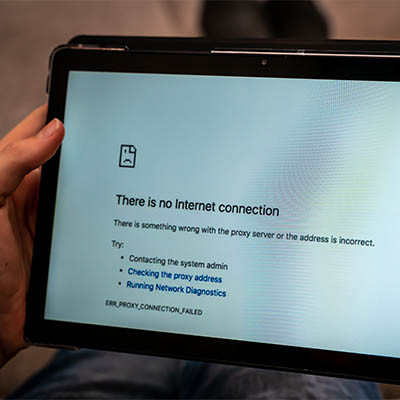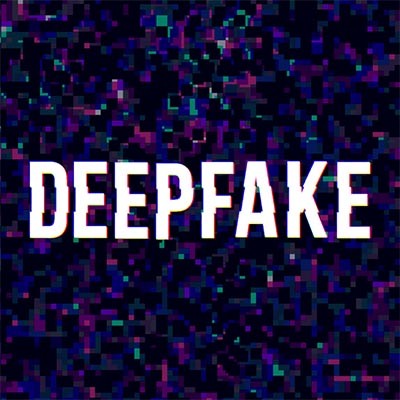ImageSys LLC Blog
The week of June 14th, 2021 saw many applications and websites suffer from outages. This, consequently, created considerable problems for many organizations that used these services. Businesses suffered from continuity issues, but perhaps the biggest takeaway is just how vulnerable the Internet really is to these kinds of issues. What happened, exactly?
When we talk about Internet accessibility (particularly as of late), we mainly focus on the idea of enabling people to use the Internet, regardless of where they may be located. While this is certainly a big issue at the present, there is another kind of accessibility that needs attention: how able those people with disabilities are to use the Internet at all.
It has been made very clear over the past few years—last week in particular—that the political atmosphere in the United States is particularly prickly, to put it mildly. One contested subject has, however, flown under the radar in recent months: net neutrality. Let’s reexamine the situation surrounding net neutrality and what is likely to come about with the new administration.
During this time of year, many people like to sit back and reminisce upon favorite stories from the past. We figured we’d join in the fun by reimagining what many argue to be a holiday classic: Die Hard.
Let’s take a few moments to consider how the story might play out if the action were to take place today…
With one of the most stressful years in recent memory coming to an end, it seems important to make the most of the holidays this year—despite the COVID-19 pandemic putting the kibosh on most of our typical holiday festivities. That’s why we’ve taken the time to put together a list of ideas that would brighten any technophile’s holiday to help guide your gift-giving.
Most people like new technology, whether it is a lamp shaped like the moon, a new video game console, or just a gadget that may improve their life a little bit. We looked around to try and find some business-esque technology the professional would be able to use in their office (or home office). Let’s take a look at them now:
The 2020 election is months away and traces of it can be seen everywhere. As people quarrel about how social media is being used to interfere with the political process, there is pressure mounting on election officials and tech companies, alike, to do what they can to keep solicitation and corruption out of the ballot box. Let’s take a neutral view of the changes that some online platforms are making to the way that political information is shared.
Two of the largest technology companies in the world are working with local governments to help slow the spread of COVID-19. Google and Apple are working to fuel application development that would notify people if they have been in proximity to others who have tested positive for the virus. Unfortunately, their good work is being misconstrued by some and is causing a stir. Today, we will look at their efforts, what critics are saying, and what you can do depending on which side of the debate you are on.
About two and a half years ago, the financial services company Equifax was forced to admit that over 145 million people were victims of one of the largest data breaches in history. The company’s network was accessible by hackers from May until July of 2017 after a website application’s vulnerability was exploited.
Most of us have a love-hate relationship with social media. A particularly controversial platform we discuss quite a bit on our blog is Facebook. Privacy is a monumental concern in the digital age, so today we thought we would go over settings you might not even realize are enabled on your Facebook profile.
If you haven’t read part one of our Facebook privacy blog, it wouldn’t hurt for you to go back and read that one first. Today, we will be building off of that blog, teaching people how to properly configure their accounts to give them the best chance to lock down their private information.
Of course, Facebook, being one of the predominant web-based services in the world, has a checkered history when it pertains to individual’s privacy. In fact, I think a fair share of its ongoing troubles when it comes to individual privacy have a lot to do with their overwhelming success.
Would you consider Facebook to be popular? It’s an interesting question. It’s like asking people if they think McDonalds is popular. These days Facebook is used by one in every four people in the world, yet there are very few people that will actively come to the social media giant’s defense, let alone admit to spending nearly half of their time online on the site (either via an Internet browser or via an app).
Machine learning and artificial intelligence have enabled us to accomplish great things with the computers we have access to today. However, it is equally true that these same innovations have also produced a great number of threats. One threat that is particularly dangerous in today’s day and age is the presence, and growing prevalence, of “deepfakes” in the media.
The past few years certainly haven’t been very good for Facebook. After going public in 2012, Facebook acquired several organizations and applications to make waves in the market. The company is now responsible for a considerable amount of data, which has led to several data breaches, exacerbating the media and creating skepticism toward the social media giant.
Regardless of whether or not you handle this facet of your business for yourself, the knowledge of how to code is becoming increasingly useful - and there are more and more resources available to help you gain this knowledge. Below, we review some that you may consider leveraging to improve some of your skills.
The facts are that data is lost, data is stolen, and you have no idea where it has gone. You may come to find out where subsequently, but many times, personal information isn’t much like a cat: once it goes away, you’ll likely never see it again. Today, we will look at the seedy underbelly of the Internet in search of our lost and stolen personally identifiable information.
Now that the European Union’s General Data Protection Regulation (GDPR)--the most comprehensive individual data protection law in history--has gone into effect, it is important to know where your business stands in regard to your potential liability. One technology that has a rather lot of ambiguity surrounding it is blockchain, which is essentially an encrypted and distributed digital ledger. How is the development of blockchain, which is built on the idea of security through transparency, going to fare under the guidelines of the new GDPR regulations?



















